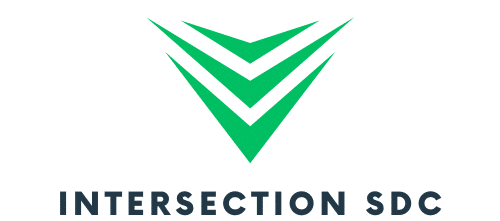In an era where data breaches are increasingly common, financial advisors play a pivotal role in safeguarding sensitive data. The need for stringent cybersecurity measures has never been more critical, particularly in the financial sector. Financial advisors in the UK are entrusted with a wealth of personal and financial client data, making them prime targets for cybercriminals. This article delves into the top cybersecurity measures you need to implement to protect your client’s data.
Cybersecurity Compliance with GDPR
In May 2018, the General Data Protection Regulation (GDPR) took effect, bringing with it stricter regulations on data protection. This framework, implemented by the European Union, applies to all businesses operating within the region, including the UK.
A lire également : How Can UK Plant-Based Food Companies Market Effectively to Non-Vegans?
GDPR compliance involves a wide array of practices, including obtaining explicit consent from clients before collecting their personal data and informing them of any data breaches within 72 hours. Non-compliance can result in hefty fines, so it’s essential to ensure your business is meeting all the stipulated requirements.
To comply with GDPR, you need to use encryption and pseudonymisation techniques to secure all personal data. Regularly auditing your data processing activities and maintaining clear documentation is also crucial. Moreover, appointing a data protection officer can prove beneficial in overseeing your GDPR compliance.
Avez-vous vu cela : What Are the Key Factors in Developing a User-Centric Payment App for the UK Market?
Implementing Robust Access Management
Access management is a critical measure in cybersecurity, ensuring only authorised individuals can access sensitive data. Implementing stringent access controls can help mitigate the risks associated with unauthorised access or data breaches.
One way to achieve this is through the implementation of multi-factor authentication (MFA). This involves using two or more verification methods, such as a password and a biometric identifier, to grant access to data. This approach helps to ensure that even if a cybercriminal gains access to a password, they still can’t access the system without the other verification factors.
Moreover, utilising role-based access controls can limit access based on an individual’s role in the organisation. This ensures that employees only have access to the information necessary for their job function, reducing the risk of insider threats.
Deploying Advanced Cybersecurity Software
Cybersecurity software is a non-negotiable aspect of protecting your business and client data. This includes antivirus software, firewalls, and intrusion detection systems.
Advanced antivirus software not only detects and removes malicious software but also offers real-time protection against emerging threats. Firewalls, on the other hand, prevent unauthorised external access to your systems. They work by monitoring and controlling incoming and outgoing network traffic based on predetermined security rules.
Intrusion detection systems monitor network traffic for suspicious activities and issue alerts when such activities are detected. This enables your IT team to respond swiftly to potential threats, minimising the risk of a data breach.
Adopting Secure Data Management Practices
Sound data management practices are essential to ensuring the protection of your client data. This involves establishing clear policies regarding data storage, transmission, and disposal.
For data storage, adopt encryption techniques to secure data both at rest and in transit. Additionally, consider investing in secure off-site storage solutions for data backup and recovery. This ensures that you can recover data swiftly in case of a breach or system failure.
When transmitting data, secure communication channels must be used. For instance, Virtual Private Networks (VPNs) can provide a secure connection for transmitting sensitive data.
Finally, when it comes to data disposal, you should securely destroy or erase all data from any storage media that’s no longer in use. This prevents any possibility of unauthorised access or data recovery.
Engaging in Continuous Staff Education and Training
Your cybersecurity measures are only as robust as your weakest link – and often, this is your employees. As such, continuous staff education and training are crucial in ensuring every member of your team is equipped with the knowledge and skills to protect client data.
Training should cover the basics of safe online behaviour, such as recognising and avoiding phishing scams. Staff should also be trained to keep software and systems updated, utilise strong, unique passwords, and report any suspicious activities promptly.
Regularly updated training ensures that your team is prepared to deal with emerging threats. It also helps to foster a culture of cybersecurity within your organisation, where every staff member understands their role in protecting client data.
Overall, while the fight against cybercrime is ongoing, implementing these cybersecurity measures can significantly bolster your defences. By prioritising data protection, you uphold your clients’ trust and maintain your reputation in an increasingly digital world.
Implementing Incident Response and Risk Management
When it comes to cyber security, it’s not just about prevention, but also about response and recovery. Having an effective incident response plan in place will ensure your organization can respond quickly and effectively to a cyber attack, thereby reducing the potential damage and downtime.
An incident response plan should outline how to identify and assess a potential security incident, contain the breach, eradicate the threat, recover from the incident and review and improve the response process. This includes establishing a dedicated incident response team, well-versed in handling cyber security incidents. Collaboration with third parties such as law enforcement or cyber security firms may also be necessary.
Risk management is another integral aspect of cyber security. This involves identifying potential risks and vulnerabilities in your systems, assessing their potential impact, and implementing measures to mitigate them. Regular risk assessments and audits should be conducted to ensure ongoing effectiveness of your security measures.
Tools such as the Ekran System can be particularly useful in this regard. This multifunctional software not only helps in the detection and prevention of insider threats but also assists in compliance with regulations such as PCI DSS, thereby enhancing your overall cyber security posture.
Harnessing Cloud Security and Best Practices
With the increasing shift towards digital solutions, many financial institutions are leveraging the cloud for storing and processing customer data. Thus, it’s imperative to implement robust cloud security measures to protect this sensitive data from cyber attacks.
Cloud security involves a combination of policies, controls, procedures and technologies working together to protect cloud-based systems, data and infrastructure. This includes data encryption, identity and access management, secure interfaces and APIs, and network intrusion detection.
Working with a reputable cloud service provider that complies with the latest security standards and compliance regulations is essential. They should provide guarantees for data security, privacy, and compliance.
Depending on the nature of your operations, you may also have to comply with additional regulations like the Financial Conduct Authority’s cloud guidelines or the Prudential Regulation Authority’s outsourcing requirements. These regulations aim to ensure the safe and secure use of the cloud in the financial sector.
In conclusion, protecting client data is a multifaceted challenge that requires a comprehensive and proactive approach. Financial advisors in the UK must stay ahead of the curve by implementing stringent cyber security measures, from compliance with GDPR to robust access management, advanced cybersecurity software, secure data management practices, continuous staff education and training, effective incident response and risk management, and secure cloud practices.
While the types and sophistication of cyber threats continue to evolve, these measures provide a strong defence. With a firm commitment to data protection, financial advisors can reinforce client trust and uphold their firm’s reputation, ensuring their long-term success in an increasingly digital and interconnected world. Remember, in the realm of cyber security, prevention is always better than cure!






